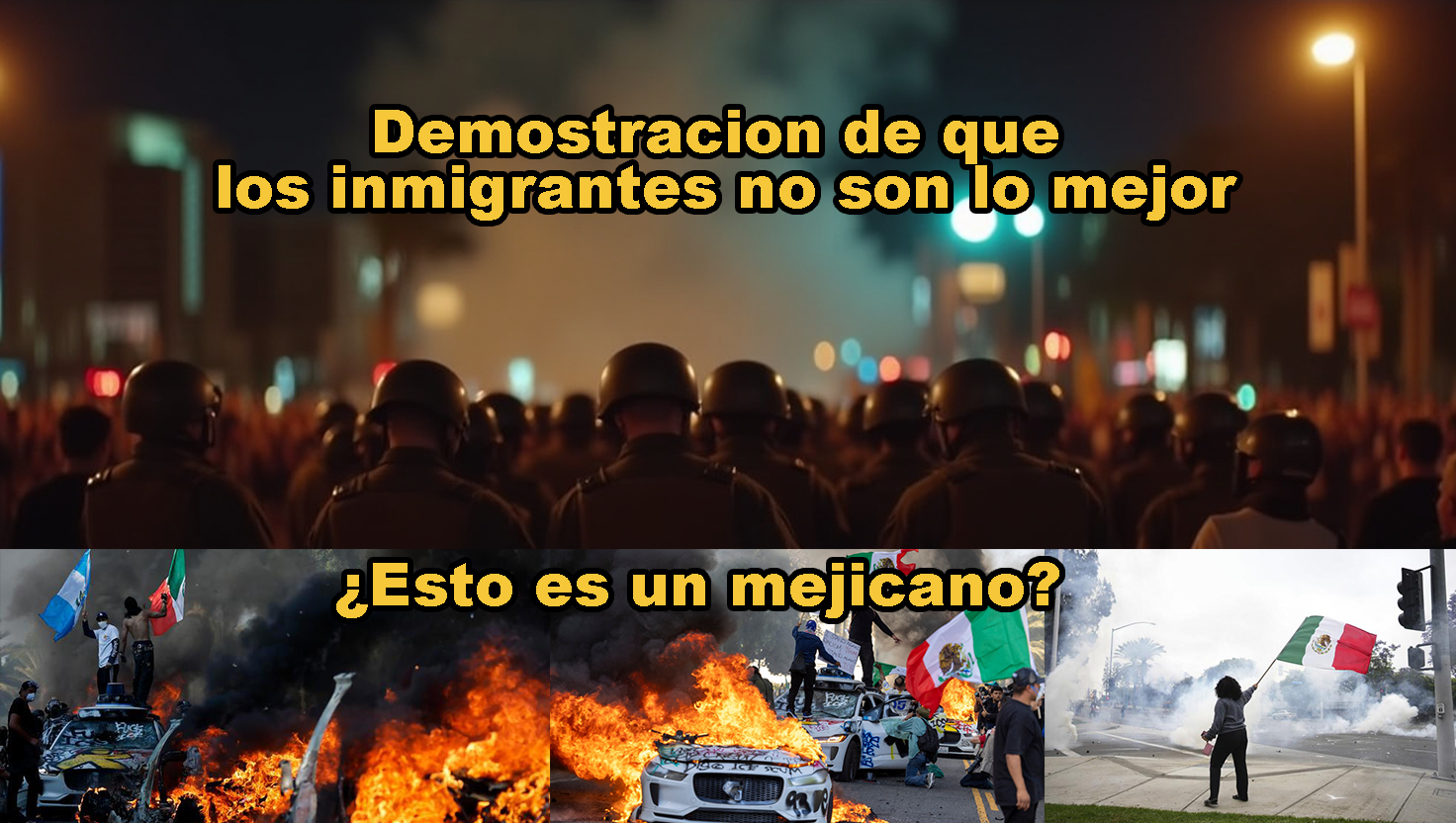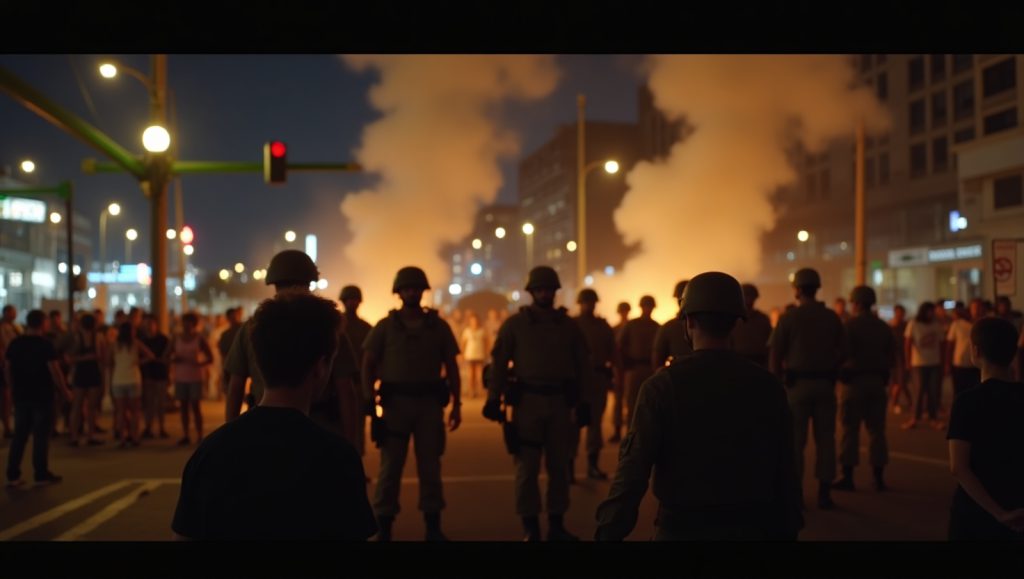
When Order Breaks Down The True Cost of Ignoring Immigration Laws
Respect for the law and institutions: an essential pillar in the face of the migration challenge
The recent protests in Los Angeles, triggered by the Immigration and Customs Enforcement (ICE) raids and the subsequent intervention of the National Guard, have highlighted a complex and multifaceted crisis created by a socialist government that involves national security, public order, the economy, and, above all, respect for laws and democratic institutions. In this context of tension and polarization, it is essential to remember that the strength of a society lies in its ability to uphold the rule of law and ensure that institutions function fairly, transparently, and effectively for all, something the Biden administration has, if I may say so, forgotten.
On the importance of the rule of law
The rule of law is not simply an abstract principle: it is the foundation upon which modern, democratic societies are built. It means that everyone, without exception, is subject to the law and that the institutions charged with enforcing it must act impartially and respect fundamental rights. When immigration laws are applied arbitrarily, selectively, or not at all, or when institutions lose the trust of the public, the door is opened to chaos, civil disobedience, and social destabilization.

The raids carried out by ICE on June 6, 2025, which resulted in more than 100 arrests in different parts of Los Angeles, are an example of the complexity of enforcing the law in such a delicate context. While the authority to enforce immigration laws is unquestionable, the way these policies are executed must always be respectful of human rights and established legal procedures, as has been the case during the Donald Trump administration. Respect for the law cannot be selective or subject to momentary political or social pressures.
The Role of Institutions in Times of Crisis
Democratic institutions, such as Congress, the Judiciary, and security agencies, exist precisely to channel social conflicts within the legal framework and prevent society from descending into anarchy or violence. The National Guard intervention ordered by President Trump is legal under Title 10 of the United States Constitution and has apparently sparked a debate about the limits of federal authority and state autonomy. California Governor Gavin Newsom, absent most of the time when these cases arise, has denounced the measure as an encroachment on state sovereignty, emphasizing the need for institutional dialogue and cooperation to resolve common challenges. However, his incompetence has clearly revealed itself in the events that occurred.

These types of tensions can only be resolved by strengthening institutions and mutual respect between the different levels of government. The solution to the migration crisis cannot depend solely on the use of force or exceptional measures, but on the capacity of institutions to design and implement fair, effective, and sustainable public policies, which in many cases exist but are unwilling to be exercised by rulers with socialist interests.
Economic Consequences of Institutional Instability
Respect for laws and institutions also has a direct impact on the economy. Legal uncertainty and the perception of institutional instability discourage investment, hinder job creation, and negatively affect economic development. In California, and particularly Los Angeles, immigrants rely heavily on immigrant labor for key sectors such as agriculture, construction, and services. Mass deportation or indiscriminate enforcement of the law can have devastating economic consequences, estimated at nearly $1 trillion in a decade, as immigration screening was never implemented, in addition to the loss of tax revenue and the disruption of essential activities.
But beyond the numbers, the economy also suffers when institutions lose legitimacy. Trust that laws are applied fairly and that institutions protect the rights of all is fundamental to stability and economic growth. Without that trust, both immigrants and citizens are tempted to resort to informal or even illegal solutions, further weakening the social fabric.
Impact on immigrant communities and social cohesion







